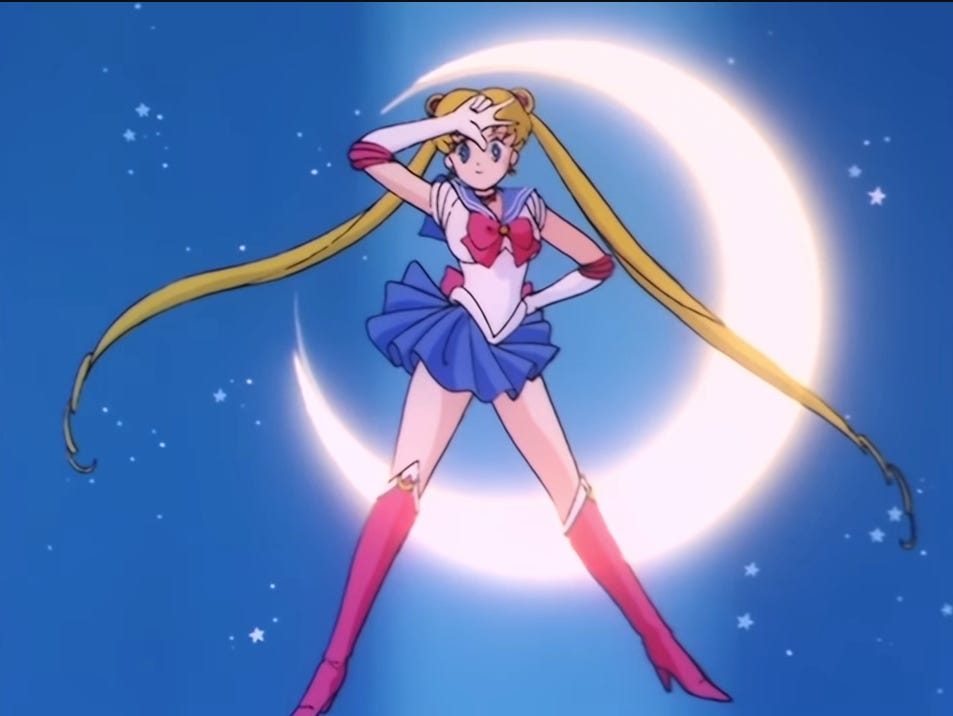What Does it Mean to Be a Magical Girl?
The best part about being a writer is the constant opportunity to learn. Doing research for my book of short stories meant I would spend an afternoon scouring digital museum archives, then jump on the phone with a man in Alabama who could give me a full rundown on the history of Debutante balls. An early idea for a thriller set in New Orleans during Prohibition quickly became a deep dive into the city’s turn-of-the-century Storyville era, in which prostitution and gambling were legal (but confined to a specific district), a period I had not known about and found to be WAY more interesting than Prohibition. I’ve learned to copywrite and craft a specific public voice for corporations, production companies, and communication specialists, and interviewed some of the most interesting people I’ve ever met for online magazines.
It can be a challenge to shift gears so often, but truthfully, I love every minute of it.
The latest addition to my eclectic resume: writing an online role-playing video game (RPG). In the gaming world, the trope of the Magical Girls has seen a rise in popularity over the past few years. These characters all have differing interests, personalities, and powers, but remain relatable to the player of the game. Working with this specific trope, along with my own foray into the magickal realm of witchcraft and divination, have given me an opportunity to ponder this question a lot: what does it mean, in fiction and in real life, to be a Magical Girl?
Transitioning to a new writing format is not exactly easy, but in terms of learning the structure, it’s somewhat straightforward; it may take a few drafts to get comfortable writing to a new audience – and, for RPGs specifically, finding the balance between the storytelling and the player’s agency in the plot – but the real work is in finding the right voice. This particular game lands, tonally, in between Sailor Moon and Wednesday, giving us a world full of rebellious Magical Girls (and Boys) who have landed in a reform school for the magically-inclined.
Research for this one included watching a lot of Sailor Moon, and what struck me the most about the show was its messaging about this Magical Girl’s many battles against the patriarchy. In one early episode in the show’s first season, our heroine struggles with body image, as so many teenage girls often do. In her quest to find the perfect diet and workout, she uncovers an evil plot to literally drain image-conscious women of their physical energy, stealing and hoarding it to later use it for nefarious purposes. It’s an unmistakable message that the lies we are so often told in our society are done so with the goal of draining us of our power, using that very power against us, and making us less of a threat.
There’s another thing I greatly appreciate about Sailor Moon: the femininity. For so many years, young women grew up in a rebellion against anything girly, leading us to wear the “not like other girls” label like a badge of honor. Lately, it has felt acceptable to turn the tide and like pink again (thanks, Barbie!) but Sailor Moon was embracing the rainbows and sparkles more than twenty years ago. Watching it now, the show feels vastly ahead of its time.
The second-best thing about being a writer? We have an ability to craft empowering messages and deliver them to hungry audiences. So, what does it really mean to be a magical girl?
As the world goes through a huge shift in favor of the patriarchy, it can feel daunting to keep our energies high. As its core, magick is about authenticity, agency, and the courage to stand up for oneself. It means resisting the urge to back down to bullies and using our voice, following our own passions and being brave enough to prioritize them over so many other responsibilities, knowing our self-worth, and understanding how and when to use energy for our own benefit and for those around us.
This takes a lot of practice. And when the voices that dominate the mainstream conversations loudly espouse the opposite, it can feel absolutely exhausting.
Like a lot of creatives, I have struggled lately to put a lot of feelings of disempowerment into words. I still haven’t found the “right” answers or a clear path forward. But a writer has a voice, and right now, a voice is inspiration, a voice is an act of courage, and a voice is resistance. For today, at least, I’ll keep writing magical girls and sending them out into the world.




